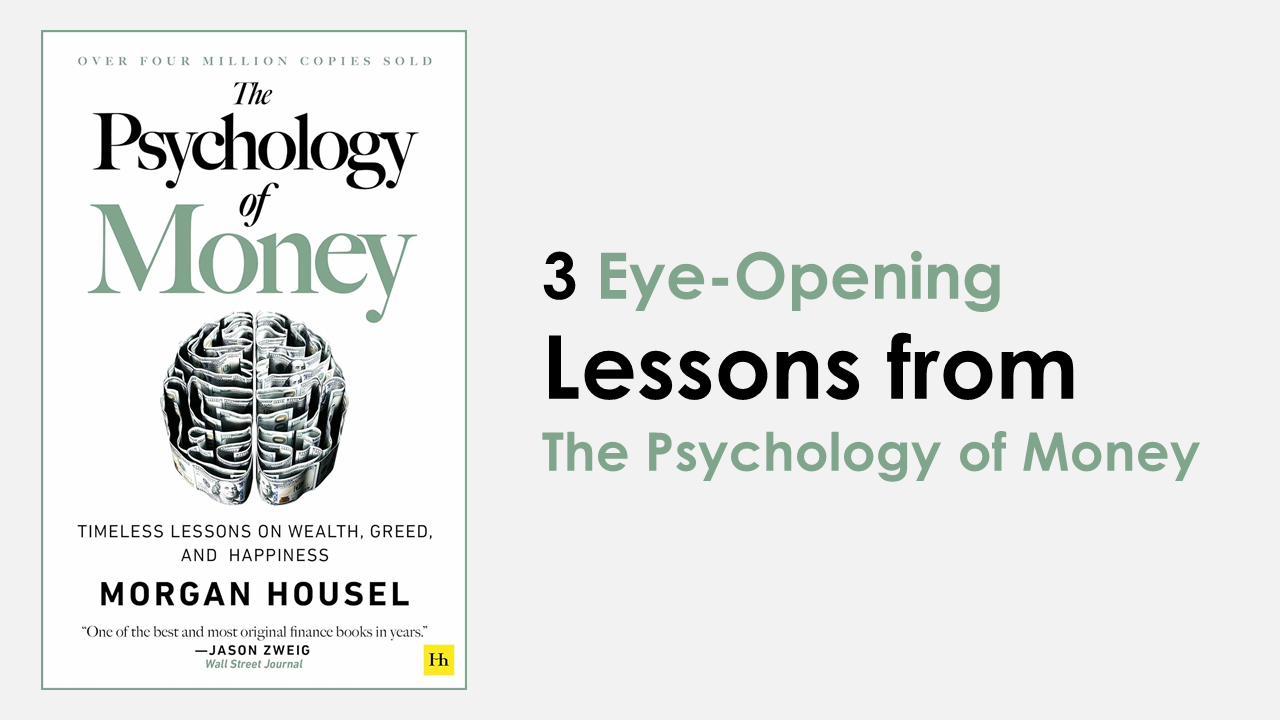Solopreneurship for Software Developers

3 Eye-Opening Lessons from The Psychology of Money
Have you ever wondered why some people seem to have a knack for building wealth while others struggle?
After reading Morgan Housel’s “The Psychology of Money,” I’ve gained some fascinating insights that challenge common misconceptions about finance and success.
Let me share three key takeaways that might change how you think about money.
Contrary to popular belief, you don’t need to be right all the time to be successful in investing. You can be wrong half of the time and still make a fortune.
A surprising study of 21,000 venture financings revealed that:
This data suggests that even being wrong more than half the time doesn’t preclude making a fortune. It’s a reminder that persistence and learning from mistakes are crucial in the world of finance.
This study of venture financing reveals that even professional investors frequently make losing bets, but their wins can be so significant that they outweigh the losses.
Consider the story of Peter Thiel, co-founder of PayPal. In 2004, he made a $500,000 investment in Facebook, which was worth over $1 billion when Facebook went public in 2012.
This single investment more than made up for numerous other ventures that didn’t pan out.
Another example is Amazon. If you had invested $1,000 in Amazon’s IPO in 1997, despite the dot-com crash and numerous other setbacks, your investment would be worth over $1 million today.
This spectacular win would easily offset multiple failed investments.
The lesson here is to focus on potential upside and not be paralyzed by the fear of making wrong choices.
Here’s a thought-provoking idea: doing something you love on a schedule you can’t control can feel just as frustrating as doing something you hate.
This realization underscores the real power of money – it buys freedom. Money allows us to do the things we love, on our own schedule, and in any place we choose.
It’s not just about accumulating wealth for its own sake, but about creating the lifestyle and opportunities we desire.
This lesson delves into the core of why we pursue financial success. It’s not about the money itself, but about the freedom it provides.
Example: Consider two scenarios:
A. Sarah is a high-powered executive earning a six-figure salary. She loves her work but is constantly on call, can’t take vacations when she wants, and often misses important family events due to work commitments.
B. Mike earns less but has structured his life and finances to work remotely as a freelance graphic designer. He can work from anywhere, take time off when he chooses, and never misses his kids’ school events.
Despite earning less, Mike might feel wealthier because his money has bought him the freedom to live life on his terms.
We often hear about saving for specific purposes like buying a house, a car, or the latest gadget.
However, there’s profound wisdom in saving money for its own sake. Why? Because life has an uncanny ability to throw curveballs when we least expect them.
Saving acts as a hedge against life’s inevitable surprises. A healthy savings account isn’t just about numbers on a balance sheet – it’s about peace of mind.
When you have robust savings, you can sleep more soundly, knowing you’re prepared for whatever life might bring.
Consider this example: John and Jane are a couple who always saved a portion of their income without a specific goal.
In 2020, when the COVID-19 pandemic hit, John lost his job unexpectedly.
However, thanks to their savings habit, they had a six-month emergency fund that allowed them to weather the storm without panic, giving John time to find a new job he loved rather than taking the first available option out of desperation.
Another example is the story of Sylvia, who had been saving consistently for years.
When a once-in-a-lifetime opportunity to start her dream business arose, she had the capital to seize it without hesitation.
Her habit of saving without a specific goal allowed her to capitalize on an unforeseen opportunity.
These examples illustrate how saving acts as both a safety net and an opportunity fund. It’s not just about preparing for negative surprises, but also being ready for positive ones.
In conclusion, these lessons from “The Psychology of Money” offer a fresh perspective on our relationship with finances.
They remind us that success isn’t about perfection, that true wealth lies in the freedom it provides, and that saving creates both security and opportunity.
By internalizing these ideas, we can develop a healthier, more balanced approach to money management.
You can listen to The Psychology of Money on Audible for free with a 30 day trial